

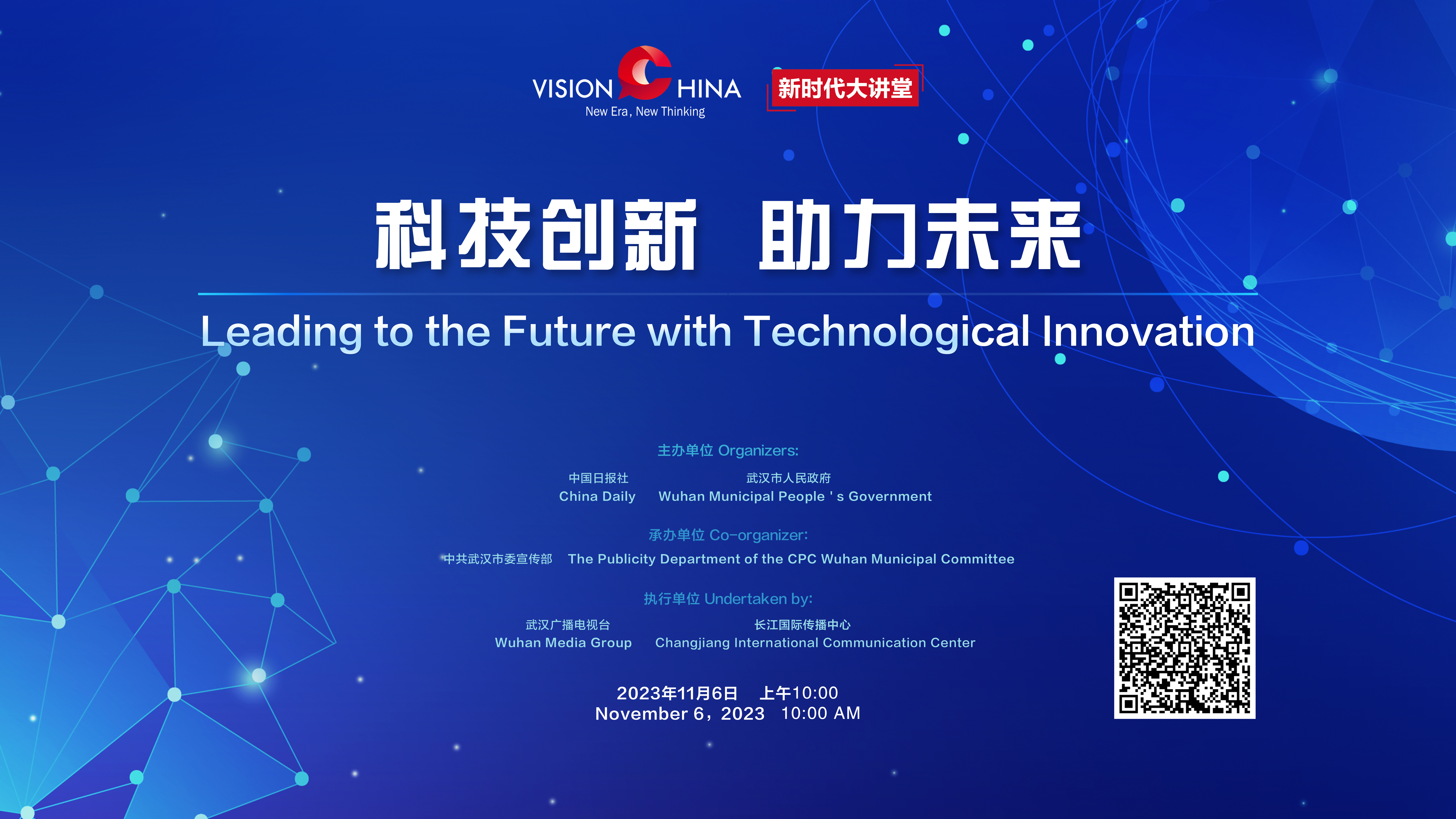
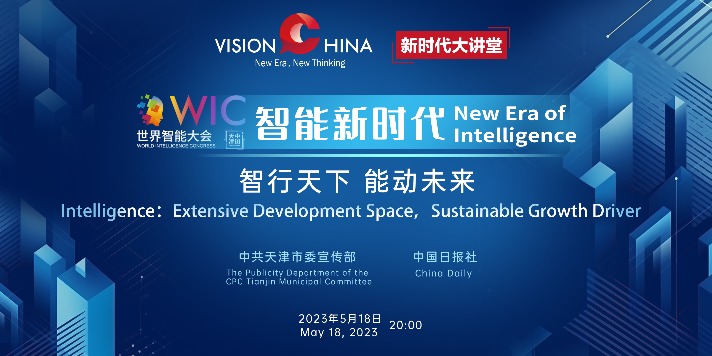
China Daily launched Vision China in 2018 to play its role as a bridge for communication between China and the rest of the world. Focusing on developments in both China and abroad, Vision China invites well-known Chinese and overseas opinion leaders to give talks and share their ideas on forums focusing on a wide range of topics.
Nov 6, 2023 – "Leading to the Future with Technological Innovation", Wuhan, Hubei province
Oct 13, 2023 – "Youth Generation: Powering the future of the Belt and Road", Taicang, Jiangsu province
July 13, 2023 – "Tracing the origins of Chinese civilization and passing it on to future generations", Chaoyang, Liaoning province
May 18, 2023 – "Intelligence: Extensive development space, sustainable growth driver", Tianjin

The future of AI and autonomous driving is exciting, and people should harness its combined power to create an inclusive, sustainable and prosperous future for all, according to Minh Thao Chan, an international student at Tsinghua University.
As a doctoral student in electronic engineering specializing in autonomous driving, he has witnessed the transformation of the AI landscape in China and is inspired by its passion, dedication and collaboration.
"Imagine a street in Beijing teeming with cars, pedestrians and cyclists, along which an autonomous vehicle moves gracefully, navigating the labyrinth of traffic, making split-second decisions with precision and accuracy," he said at Vision China on Thursday night.
This would be a sight to behold and symbolizes AI's potential to create a future where traffic jams are a memory and streets are safer, more efficient and environmentally friendly, he said, adding that it's a future that China is on the cusp of realizing.
When Thao Chan arrived in China from France in 2016, electric vehicles were just being introduced. By 2018, most taxis were electric, and in the last three years, autonomous vehicles have gone through trials at test centers and, more recently, on roads in Shanghai and Shenzhen, Guangdong province.
As more people embrace the potential of autonomous driving, these vehicles are becoming integral parts of the urban fabric, transforming how we live, work and play.
Thao Chan used the example of a visually impaired woman in Beijing to explain the power of AI and autonomous driving to change lives.
For most of her life, she relied on others for mobility, but the arrival of autonomous vehicles granted her newfound independence. She is now able to order a self-driving car and go wherever she desires.
However, he said that as people explore the potential of AI and autonomous driving, they must remain mindful of the challenges they present.
Data privacy, cybersecurity and ethical considerations must be addressed, and it is the collective responsibility of researchers, policymakers and citizens to ensure that AI technology remains safe.
"We have an unparalleled opportunity to shape a world that is more intelligent, more connected and more compassionate," he said.
"Together, we can forge a new era of transportation and mobility. Together, we can build a future where technology serves not just as a tool, but as a force for good, improving lives and fostering greater understanding, connection and collaboration across the globe."

A responsible approach is needed to maximize the benefits of artificial intelligence, which as a tool could be a powerful assistant to humans, according to a senior executive of United States tech giant Microsoft.
At Vision China on Thursday, Wei Qing, chief technology officer of Microsoft (China) Ltd, said that in the era of AI, positioning the relationship between humans and machines is of crucial importance.
"AI should be a copilot rather than an autopilot. In other words, the machine is an assistant to help people, and no matter how powerful, it is always in the side seat, not in the driver's seat," Wei said.
He referred to US engineer Vannevar Bush, who in 1945 published an essay titled "As We May Think", in which he was already envisioning the information era and the need to design a machine to help humans manage the information overload.
More importantly, Bush envisioned that the machine would be able to process information through selection by association, which Wei said is similar to the way generative AI works now.
Generative AI is the latest tech frontier and has taken the world by storm. It refers to computer algorithms trained to produce new text, images, code, video or audio, a key example of which is ChatGPT, an AI chatbot developed by US-based AI research company OpenAI.
Wei quoted a line from the 1927 movie Metropolis describing the difference between humans and machines: "The mediator between head and hands must be the heart."
"It is all about how to position humans and how to position machines. If we position this incorrectly, this might have a negative impact on society, but if this is positioned in the right way, as we mentioned just now, in a responsible way, we might see the coming of a new era of AI that will really help humans in a purposeful manner," Wei added.
His comments come in the wake of global discussion over the use of ChatGPT-style products and related AI technology, which have raised concerns of ethics, data security and infringement of personal privacy.
Meanwhile, the number of incidents involving the misuse of AI continues to rise. According to the AIAAIC database, an independent organization that tracks incidents related to the ethical misuse of AI, the number of incidents and controversies has increased 26-fold since 2012.
In an open letter in March, Tesla CEO Elon Musk and a group of AI experts and industry executives called for a six-month pause in developing language models more powerful than OpenAI's newly launched GPT-4, citing potential risks to society, with experts saying the development of responsible AI is vital to long-term, sustainable growth.
"At Microsoft, we have principles laid out as our North Star in doing all things related to AI, which starts from a foundation of accountability and covers all stages," Wei said.
But principles don't execute themselves, and they need to be interpreted. To solve this problem, Microsoft also provides tools and frameworks such as a measurement standard and tests for promoting responsible AI development, Wei added.
He also highlighted the fact that even though AI is now the buzzword, digital transformation remains the foundation for the progress of machine capabilities.
"No matter how powerful a machine is, it needs human data, either human-generated data or data generated by human-developed machines," Wei said.
"Then, through computer algorithms, AI can turn data and point-in-time data into information and knowledge.
"Its like the well-known information pyramid, DIKW — data, information, knowledge and wisdom. Humans should stay at the top, at the wisdom level, and machines should handle the rest of the work."

Artificial intelligence can be harnessed to boost the efficiency of healthcare services and hospital management, devise tailored treatment plans and help address the shortage of doctors, a senior hospital manager said on Thursday.
Yan Hua, an ophthalmologist who is also Party chief of Tianjin Medical University, said that a wide range of AI tools such as speech recognition, computer vision, data collection and analysis can be deployed to empower the medical sector.
"AI can improve the efficiency of diagnosis and treatment and increase safety and precision in patient care," he said during a Vision China event organized by China Daily in Tianjin. "It can also prescribe personalized medicine based on the particular conditions and genomic information of patients to improve treatment outcomes."
Yan said that AI can also play a positive role in enhancing hospital management and alleviating the lack of doctors. It can also help patch the healthcare insurance net in less-developed regions.
"For instance, grassroots eye doctors might not be capable of detecting diabetic retinopathy accurately and might have no idea how to deliver treatment.
But if communities are equipped with an AI device to help them screen for the condition, those showing signs of the disease can be diagnosed and transferred to better hospitals where they can be treated," he said.
Yan said that the accuracy rate of AI-powered diagnosis is nearly on par with that of experienced doctors, but AI greatly shortens the time it takes to generate a correct diagnosis.
"Also, for patients with very complicated eye diseases, AI can be used to help design and execute a surgery," he added.
Yan said that for patients with severe eye trauma and who have lost the perception of light, the question of whether a vitrectomy — surgery to remove the eye's vitreous humor, the tissue behind the lens of the eye, and replace it with another solution — would yield the desired results is difficult for even top doctors to determine.
"We have therefore developed and upgraded an AI model that is fed the condition of patients before surgery, such as whether the retina is detached or the vision is impaired," he said.
"As a result of continuous training and testing, the system can generate an accurate prediction of the post-surgery level of vision."
Yan Hua said that AI's spread into the healthcare sector has begun but remains at an early stage.
"Although AI has many advantages, doctors cannot be replaced entirely because AI needs to learn and train," he said.
"As the medical field advances, doctors are still needed to continue feeding fresh data to the AI for it to process."
A potential caveat, he said, is how to determine legal responsibilities when an incorrect diagnosis is given, or a misuse of technologies occurs.
"The protection of patient-doctor privacy and data security are bound to be essential tasks," he said.
Yan added that there is no standard pricing mechanism for medical services involving AI so far, which could prevent hospitals from purchasing and deploying AI equipment.
As the next generation of artificial intelligence technology is expected to play a positive role in improving human well-being, greater efforts should be made to give full play to the role of emerging intelligent technology to empower high-quality economic development and ensure the safe and responsible use of AI, according to speakers at the latest Vision China event on Thursday.

Qu Yingpu, publisher and editor-in-chief of China Daily, called for efforts to nurture new drivers of economic growth in the post-pandemic era, create an open, fair, just and nondiscriminatory environment for scientific and technological development, and work hard to eliminate "gaps" and "barriers".
The purpose of such moves is to promote balanced, coordinated and inclusive global development while enabling people of all countries to better share the fruits of development, Qu said.
"We should work together to improve global governance on science and technology, build a balanced, effective and sustainable security architecture, and let intelligent technology evolve in the right direction to provide a strong pillar for global security," Qu said at the event.
He also stressed the need to further tap into the potential of intelligent technology and explore scenario-based, smart applications of cutting-edge technology, in order to build new platforms for dialogue among civilizations and cross-cultural communication, and make greater contributions to cultural blending and people-to-people exchanges across the globe.
Jointly organized by China Daily and the Publicity Department of the Communist Party of China Tianjin Municipal Committee, the event, themed "Intelligence: Extensive Development Space, Sustainable Growth Driver", was broadcast to a global audience on Thursday night. The event is part of the ongoing 7th World Intelligence Congress, which started on Thursday and runs through Sunday in Tianjin.
The congress showcases the latest achievements and trends of AI development and brings together officials, experts, scholars and entrepreneurs to discuss key topics such as intelligent connected vehicles, generative AI, intelligent manufacturing, brain-machine interaction and other cutting-edge technologies.
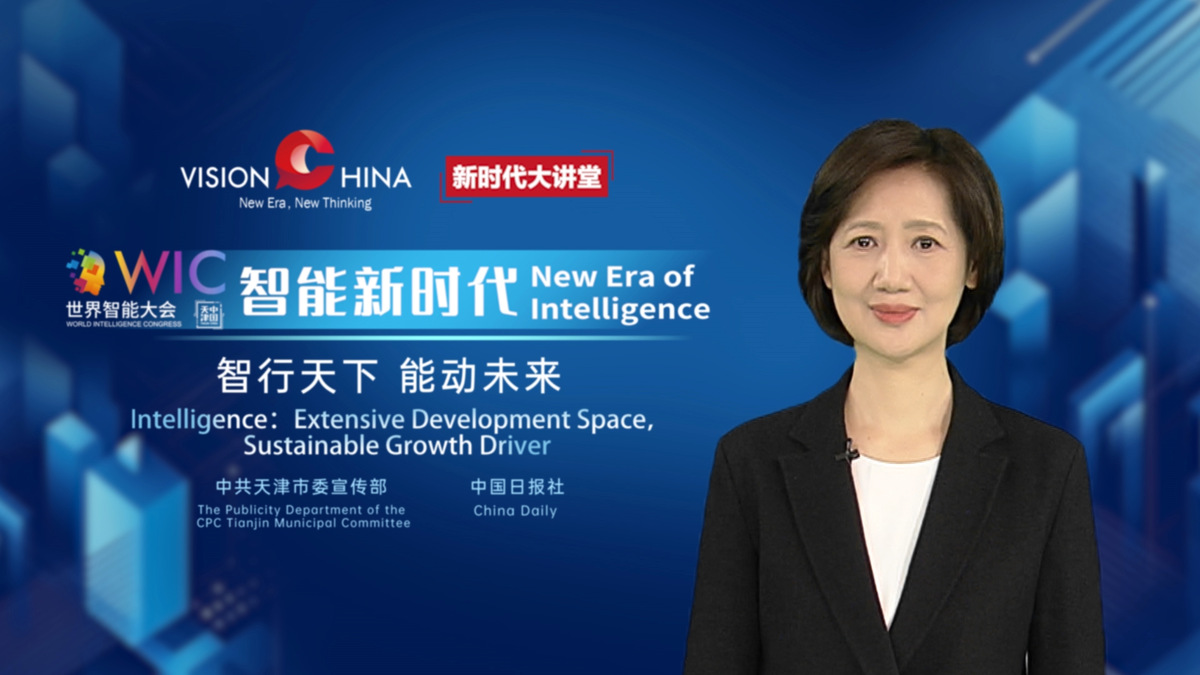
"We need to harness the power of the new generation of artificial intelligence to drive technological innovation, upgrade industries and boost productivity," said Shen Lei, a member of the Standing Committee of the CPC Tianjin Municipal Committee and head of the committee's Publicity Department.
Shen highlighted the significance of fostering new advantages in industrial development by vigorously developing the digital economy, accelerating industrial digitalization and digital industrialization, and promoting the in-depth integration of the internet, big data and AI with industries.
Tianjin, a major port city in northern China, has been actively embracing AI, intelligent manufacturing and other related smart technologies to stay abreast of key developments. It has set up a special 10 billion yuan ($1.42 billion) fund for intelligent manufacturing and a 100-billion-yuan industry fund for the new generation of AI.
Shen said Tianjin will deepen reform and opening-up, create a world-class business environment that is market-oriented, law-based and internationalized, and build a high-level platform for opening-up.

Wei Qing, Microsoft (China) Ltd's chief technology officer, said no matter how powerful AI is, it is a machine's capability. How humans react to, manage and guide it will determine whether it serves human purposes. "So, there must be a responsible AI approach and principle," Wei added.
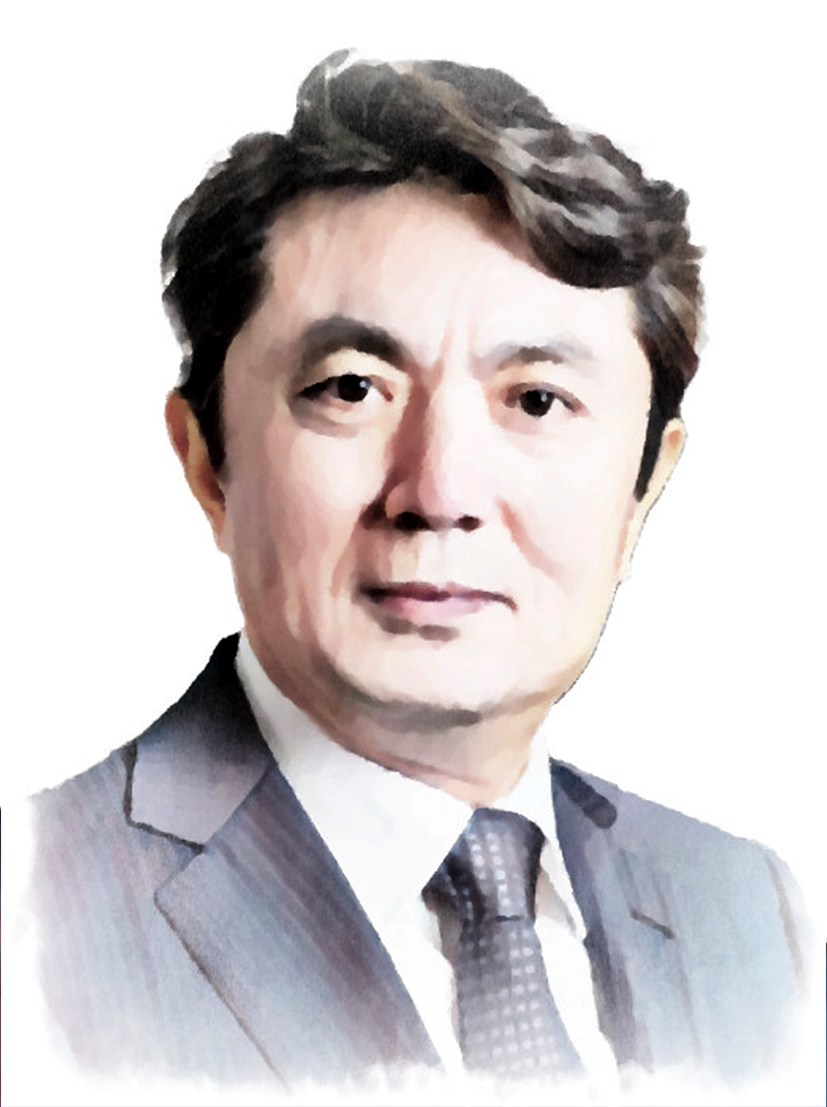
AI is gradually being implemented in the medical field, covering screening, diagnosis, treatment and predictions, said Yan Hua, Party secretary of Tianjin Medical University. It helps to provide better hospital management, patient services, chronic disease management and more efficient medical process.
There are still problems in AI's use in the medical field, such as ethical issues, data security and the calculation of the cost of AI, Yan said, adding that its application in the field is still in the early stages of development.

Pierre Pakey, head of product innovation of Laiye Technology (Beijing) Co, said one of the most exciting developments in AI is that large language models can sometimes provide much finer details than human efforts.
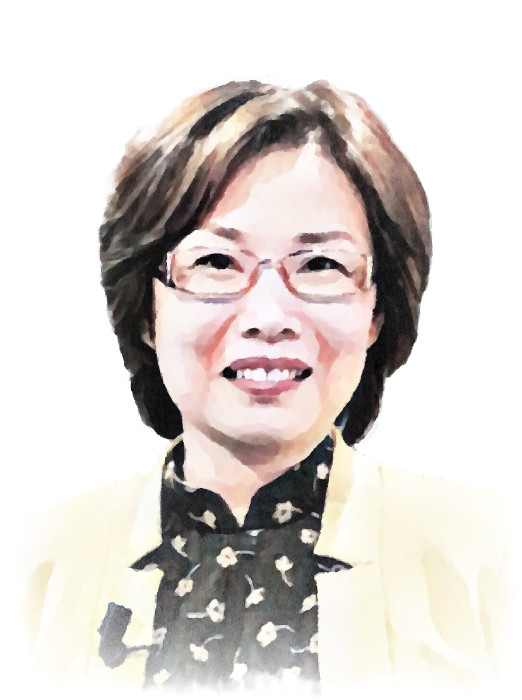
Fu Xiaolan, a fellow of the British Academy of Social Sciences and professor and director of the Technology and Management Center for Development at the University of Oxford, said AI can bring wonderful opportunities for development through providing greater efficiency and improvement in work conditions and welfare. It can also enable innovation in production and social services, and bring significant digital windows of opportunity for some developing countries.
Although AI brings new development opportunities, there are still challenges to face, she added.
"We need to ensure the privacy, security and safety and robustness in the use of AI and also the transparency and fairness in the application of AI and accountability of the people who develop and employ AI for business and other services," Fu said.

AI has immense potential for revolutionizing transportation in areas such as managing traffic jams and making streets safer, more efficient and environmentally friendly, said Minh Thao Chan, a PhD student majoring in electronic engineering at Tsinghua University.
Contact the writers at
fanfeifei@chinadaily.com.cn
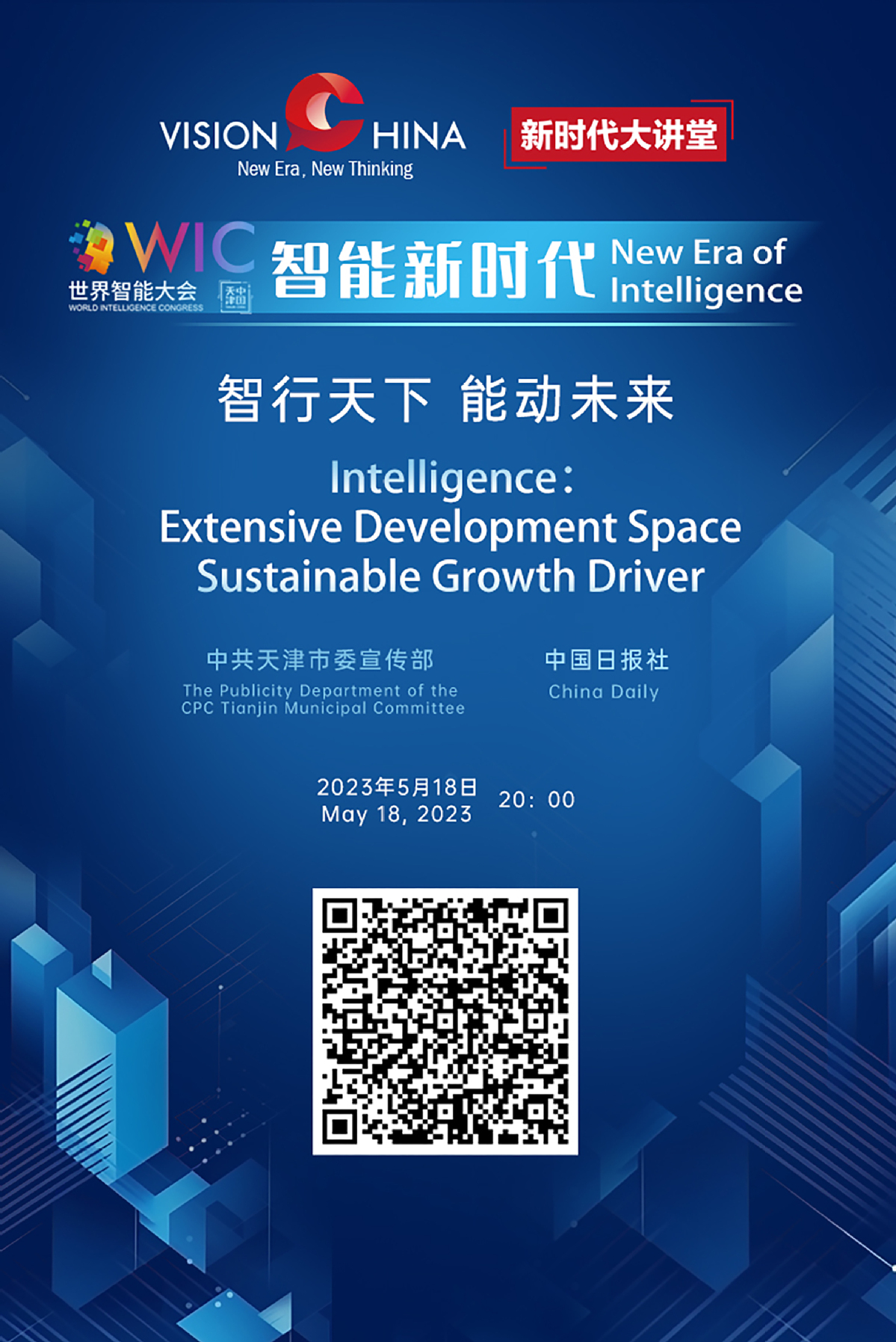
China Daily's latest Vision China event will be broadcasted live at 8pm Thursday evening, with Chinese and foreign guest speakers sharing their China experiences with international exchanges and cooperation in the field of intelligence. Stay tuned!
Artificial intelligence has become the buzzword of this year's internet industry thanks to ChatGPT and its Chinese equivalents.
The latest Vision China event will invite government officials, business executives and academics for in-depth discussion on the topic.
The event themed "Intelligence:Extensive Development Space, Sustainable Growth Driver" also echoes the Seventh World Intelligence Congress from May 18 to May 21 in Tianjin.
China Daily's digital journalist Yuanxi will host the Vision China event. Tune in at 8 pm on May 18 to watch it LIVE.
